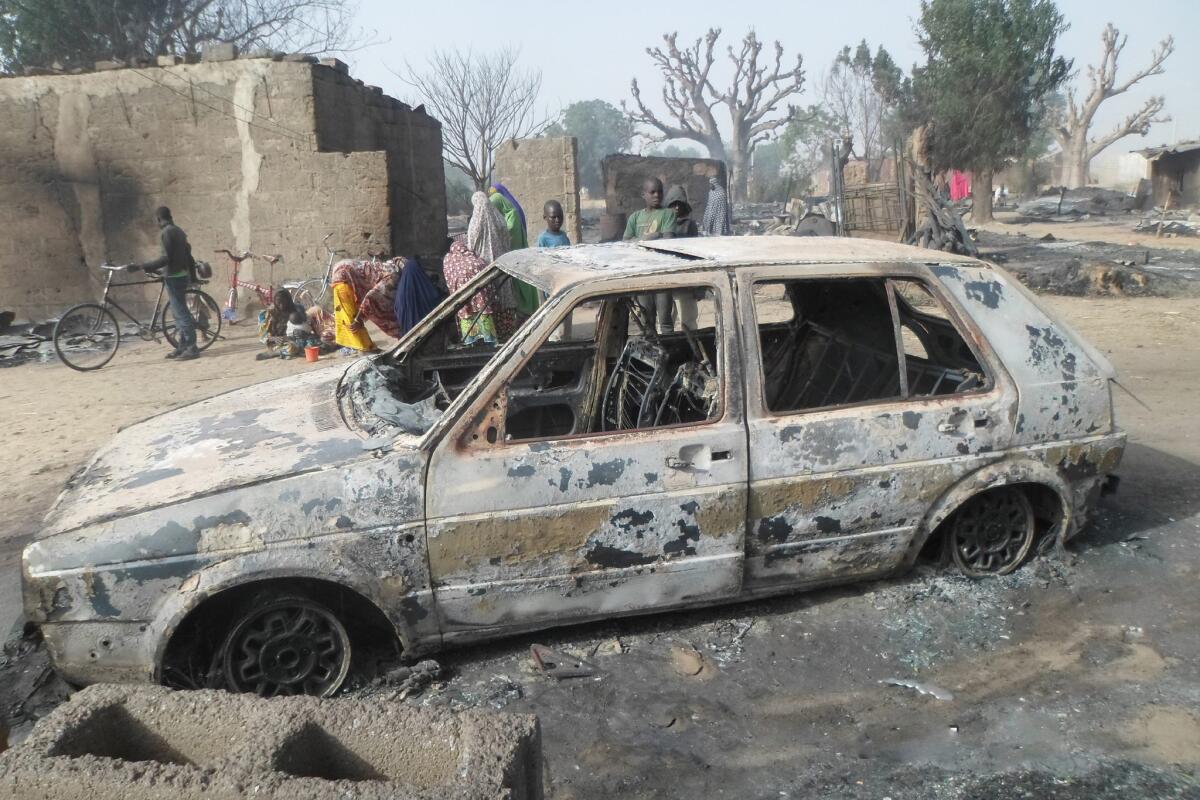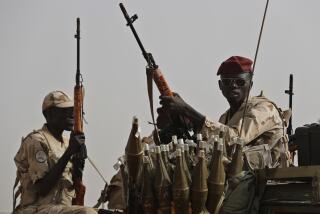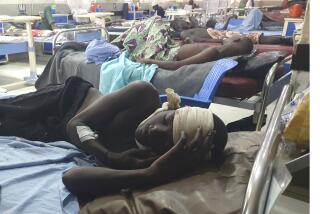Nigerian Boko Haram extremists burn homes with villagers still inside

Children gather around a burnt-out car Sunday after an attack by Boko Haram in Dalori village, Nigeria.
- Share via
Reporting from Johannesburg, South Africa — Boko Haram, the extremist militia allied with Islamic State, killed dozens of people, including children, in a weekend attack on a village in northeastern Nigeria, a sign the group may be reasserting itself after a series of retreats.
Boko Haram extremists attacked the village of Dalori late Saturday, opening fire on residents and burning houses with people inside, according to local media. Reports of the dead ranged from about 65 to 90 people.
The attack was typical of assaults by the Nigerian extremist group in recent years: Militants storm in, shooting people randomly, killing men and burning houses. Local media reported dozens of people were injured.
One survivor, Alamin Bakura, told the Associated Press that he hid in a tree and heard the three-hour attack unfolding. He said he heard the screams of children inside burning houses. AP said he wept as he described what he saw and heard.
Suicide bombers reportedly took part in the attack.
AP cited a local official saying that 86 bodies had been collected.
Boko Haram controlled a large slice of Nigeria’s northeast until early last year, when it was driven out of much of the region by Nigeria’s military. However, the group remains capable of deadly attacks on soft civilian targets such as markets and bus stations.
In recent months, attacks have increased, often targeting poor villages in remote Nigeria.
Boko Haram earned global notoriety when it abducted nearly 300 girls from the village of Chibok in northeastern Nigeria in 2014, in a case that drew global condemnation. The girls still have not been recovered.
Boko Haram was blamed last week when multiple suicide bombings killed at least 15 civilians and a soldier in Chibok.
The deadly insurgency has paralyzed transport and trade in northern Nigeria, left thousands unemployed and the economy reeling.
The group, a severe and violent religious sect opposed to secular education and the Nigerian state, launched an insurgency in the early 2000s that has gained traction in recent years.
Although Boko Haram is no longer able to control territory as it did in 2014 and early 2015, it retains the ability to launch devastating suicide bombings, often in markets. Many suicide bombings have been carried out by teenage girls, who can conceal the bombing equipment under long, flowing garments.
President Muhammadu Buhari vowed to wipe out Boko Haram by the end of last year, but Boko Haram dug in, rebuilt and launched more attacks on civilians.
More to Read
Sign up for Essential California
The most important California stories and recommendations in your inbox every morning.
You may occasionally receive promotional content from the Los Angeles Times.












